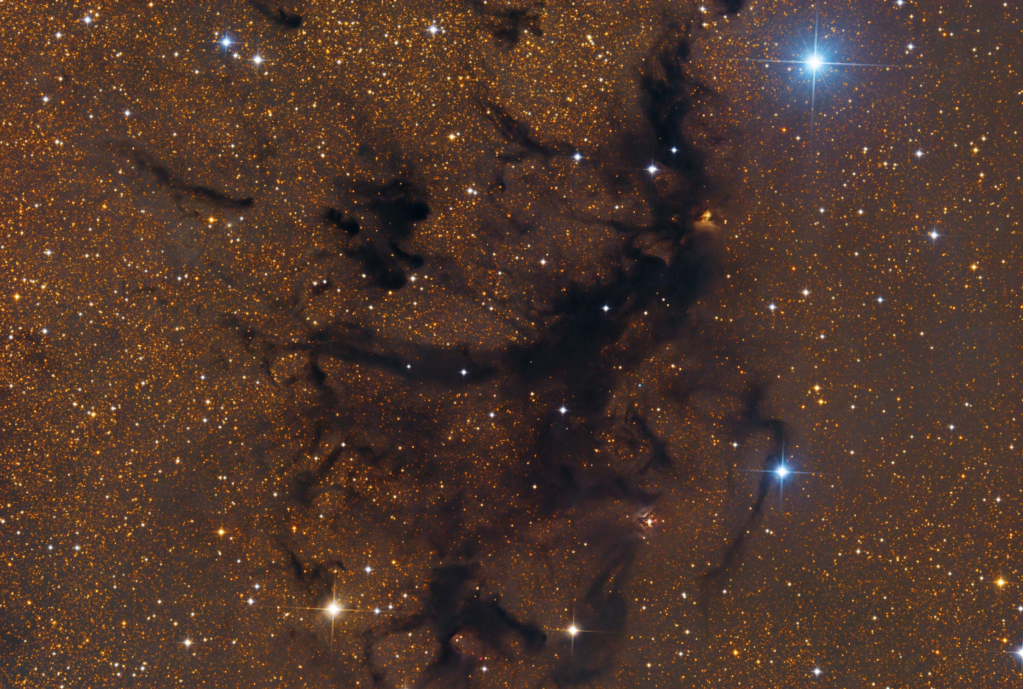Astronomy Picture of the Day
Discover the cosmos! Each day a different image or photograph of our fascinating universe is featured, along with a brief explanation written by a professional astronomer.
Image Credit & Copyright: Frank Sackenheim, Josef Poepsel, Stefan Binnewies (Capella Observatory Team)
Explanation: Part of a dark expanse that splits the crowded plane of our Milky Way galaxy, the Aquila Rift arcs through planet Earth's skies near bright star Altair. In eerie silhouette against the Milky Way's faint starlight, its dusty molecular clouds likely contain raw material to form hundreds of thousands of stars and astronomers search the dark clouds for telltale signs of star birth. This telescopic close-up looks toward the region at a fragmented Aquila dark cloud complex identified as LDN 673, stretching across a field of view slightly wider than the full moon. In the scene, visible indications of energetic outflows associated with young stars include the small red tinted nebulosity RNO 109 above and right of center, and Herbig-Haro object HH32 below. These dark clouds might look scary, but they're estimated to be some 600 light-years away. At that distance, this field of view spans about 7 light-years.
Tomorrow's picture: a dark and spooky night
Authors & editors: Robert Nemiroff (MTU) & Jerry Bonnell (UMCP)
NASA Official: Phillip Newman Specific rights apply.
NASA Web Privacy Policy and Important Notices
A service of: ASD at NASA / GSFC,
NASA Science Activation
& Michigan Tech. U.
This is an automated email. If you notice any problems, just send me a note at gtracy@gmail.com. You can add and remove email addresses to this distribution list here, https://apodemail.org.Unsubscribe

No comments:
Post a Comment